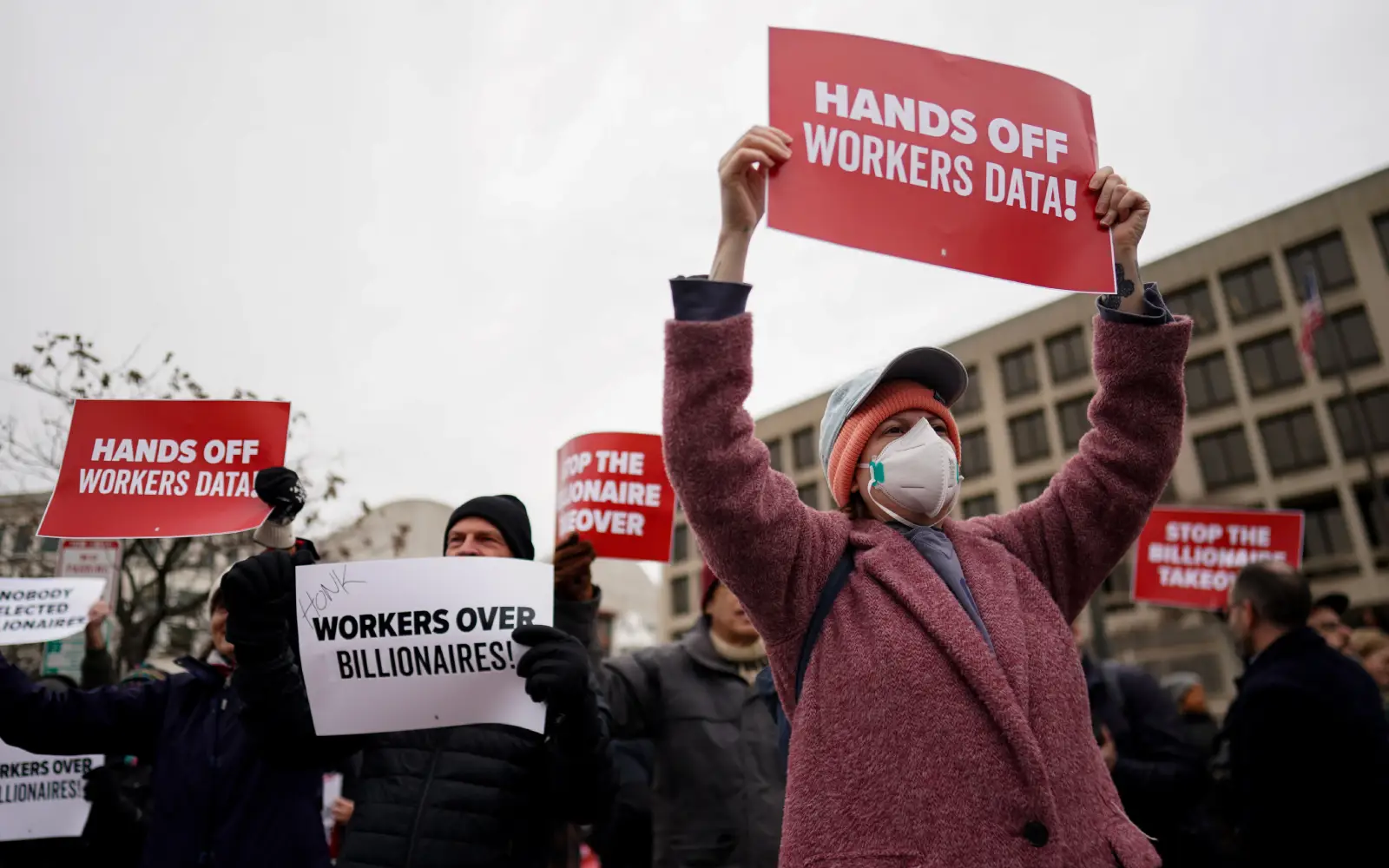
Holden Hopkins is a student at Harvard Law School.
In today’s News & Commentary, a federal judge declines to block DOGE access to DoL data, federal worker “return to office” mandates hinge on readings of management rights, and the EEOC begins pulling back support for trans and gender non-confiorming workers.
As Divya reported last week, a coalition of unions have brought suit against Elon Musk’s Department of Government Efficiency (DOGE), which has been seeking access to internal Department of Labor data. On Friday, US District Court for the District of Columbia Judge John D. Bates ruled that the unions lacked standing, as they failed to demonstrate concrete harm to their members. Despite acknowledging “concerns about defendants’ alleged conduct,” Judge Bates determined there was no immediate legal basis to stop DOGE’s plans. This decision marks another victory for the Trump administration in its push to access federal agency data, despite ongoing legal resistance from labor groups.
The unions sought to protect highly sensitive DOL databases, which contain information on workers’ compensation claims, whistleblower complaints, and market-moving labor statistics. Their lawsuit, filed on February 5th, argued that DOGE’s data access violated the Privacy Act and the Administrative Procedure Act, as the law requires agencies to obtain consent from individuals before disclosing personal records to other agencies. The ruling is a setback for labor advocates who fear that DOGE’s unprecedented intrusion into labor data could undermine worker protections.
The Trump administration’s push to force federal employees back into the office faces serious legal challenges, particularly regarding collective bargaining agreements and management rights. The Office of Personnel Management (OPM) has declared that agencies can override union contracts mandating telework, claiming that decisions on workplace location fall under “management rights.”
But advocates for federal workers argue that such assertions of management rights are overbroad, and that telework is a working condition subject to bargaining. The Federal Service Labor-Management Relations Statute states that government-wide rules which result in a “substantive change in any condition of employment” are required to prompt bargaining. Federal worker unions are already preparing to fight this directive, arguing that it unlawfully circumvents labor agreements and established bargaining rights.
The Equal Employment Opportunity Commission (EEOC) is pulling back from defending its 2024 harassment guidance, which includes gender identity protections, signaling a shift under the Trump administration. Acting Chair Andrea Lucas has stated that the commission “must rescind the guidance,” aligning with the administration’s executive order recognizing only “two sexes.” However, the EEOC currently lacks a quorum to hold an official vote revoking these protections, following the President’s removal of two Democratic commissioners.
In the meantime, the agency has already begun rolling back support for transgender workers in legal cases, including withdrawing from oral arguments and requesting delays in discrimination lawsuits it had previously backed. This shift represents a broader strategy to erode workplace protections for LGBTQ+ employees, particularly transgender workers.
Once another Republican commissioner is confirmed, the EEOC is poised to officially weaken anti-harassment policies by removing protections against misgendering and restricting access to gender-affirming workplace accommodations. Advocates warn that these actions will embolden employers to discriminate without consequence, and labor unions and worker groups are preparing for a fight to uphold the existing protections.






Daily News & Commentary
Start your day with our roundup of the latest labor developments. See all
June 30
Antidiscrimination scholars question McDonnell Douglas, George Washington University Hospital bargained in bad faith, and NY regulators defend LPA dispensary law.
June 29
In today’s news and commentary, Trump v. CASA restricts nationwide injunctions, a preliminary injunction continues to stop DOL from shutting down Job Corps, and the minimum wage is set to rise in multiple cities and states. On Friday, the Supreme Court held in Trump v. CASA that universal injunctions “likely exceed the equitable authority that […]
June 27
Labor's role in Zohran Mamdani's victory; DHS funding amendment aims to expand guest worker programs; COSELL submission deadline rapidly approaching
June 26
A district judge issues a preliminary injunction blocking agencies from implementing Trump’s executive order eliminating collective bargaining for federal workers; workers organize for the reinstatement of two doctors who were put on administrative leave after union activity; and Lamont vetoes unemployment benefits for striking workers.
June 25
Some circuits show less deference to NLRB; 3d Cir. affirms return to broader concerted activity definition; changes to federal workforce excluded from One Big Beautiful Bill.
June 24
In today’s news and commentary, the DOL proposes new wage and hour rules, Ford warns of EV battery manufacturing trouble, and California reaches an agreement to delay an in-person work mandate for state employees. The Trump Administration’s Department of Labor has advanced a series of proposals to update federal wage and hour rules. First, the […]